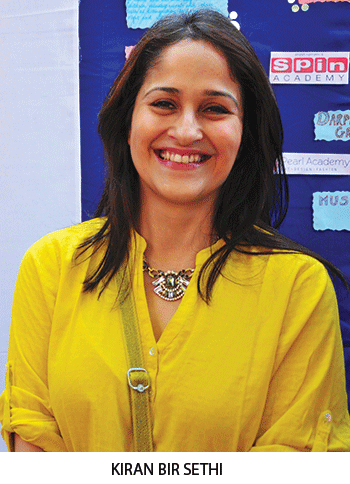 Back in 2013, a group of primary school children in Benin (Africa), angered that adolescent girl children were being forced into marriage, persuaded the government to ban child marriages. A year later, students in Colombia designed a toy plane that would drop seeds into a deforested valley to restore its green cover. In 2015, school students in Israel grew vegetables on a farm and donated the produce to thank the man who cooked lunch for them.
Back in 2013, a group of primary school children in Benin (Africa), angered that adolescent girl children were being forced into marriage, persuaded the government to ban child marriages. A year later, students in Colombia designed a toy plane that would drop seeds into a deforested valley to restore its green cover. In 2015, school students in Israel grew vegetables on a farm and donated the produce to thank the man who cooked lunch for them.
These are some of the can-do young children around the world who have opted to take the ‘I Can’ pledge of Design for Change (DFC), a global learning-by-doing children’s movement initiated in 2009 by the K-12 Riverside School, Ahmedabad (India). The objective of DFC is to disseminate the idea that education must extend beyond mere academics and good exam results.
To enable primary school children to conceptualise socially beneficial experiential learning projects in the neighbourhood of their schools, the authors of DFC designed a FIDS framework — a four-step process of feel-imagine-do-share. Through ‘feel’, a group of students identify a social issue or problem in their neighbourhood they feel strongly about. Next they ‘imagine’ a practical way to ameliorate it. Then they put remedial project implementation ideas into action — the ‘do’ stage. Finally, they ‘share’ their story with other children by saying, “I Can. You can too!”
School managements anywhere in the world can introduce DFC projects into their classrooms by taking on our School Challenge. There is no charge for participation and our DFC toolkits are open source. Schools can register at www.challenge.dfcworld.com and submit their stories of change. We have also developed a DFC curriculum for class VIII children implemented in 164 schools across India since 2014.
Over the years, teachers of student groups who have signed up for the DFC school challenge have become aware that the FIDS framework develops communication, collaboration, critical and creative thinking skills of children. A research study conducted by the Good Work Project of Harvard University, USA endorses DFC’s FIDS curriculum because it “has been able to increase average student’s empathetic ability, as measured by choosing problems that affect others, describing multiple viewpoints, and keeping the stakeholder in the centre of designed solutions”.
Since it was launched eight years ago, the DFC School Challenge has attracted 2.2 million children and 62,000 teachers in 58 countries around the world. In India since 2009, the DFC imprint has reached 340,000 children in 27 states.
In the process over 22,000 I Can stories of change have been written and recorded in the past eight years. These stories are shared every year at a DFC Be the Change celebratory programme which brings young change makers from around the world together to share their extraordinary stories. This annual event also provides an opportunity for our global partners to connect and collaborate to spread the I Can message to children in different countries.
As a non-profit organisation, 40 percent of DFC funding comes from individual donors and 60 percent from foundations. Among the latter are INDEX-Design to Improve Life, the Ashoka and Rockefeller foundations, Lego-Reimagine Learning, Asia Society and other organisations. The Teach for All network has played an important role in spreading DFC’s I Can message around the world. WASH United and DFC have collaborated to combine the benefits of play-based learning and design thinking in sanitation and hygiene.
Currently, a specially constituted task force is collating and classifying the invaluable 22,000 stories of change that have been submitted for the School Challenge over the past eight years. In the near future, a globally accessible resource platform will enable teachers to explore socially beneficial projects completed by K-8 children that can be incorporated into their subject lessons. Moreover, on June 9, DFC signed a collaboration with OIEC — the International Organization of Catholic Schools — to introduce the DFC School Challenge in 240,000 schools worldwide — and Scholas Occurrentes — an initiative led by Pope Francisio to prompt students in 446,000 schools across the world to accept the DFC School Challenge.
The purpose of the Design for Change programme is to enthuse and encourage primary school children to develop the confidence to address social challenges in their neighbourhoods from young age. Through our FIDS formula, children ideate, implement and share public welfare projects with their peers worldwide. The DFC programme offers great opportunities for children to work in groups and learn by doing. I invite K-8 school principals and teachers to sign up your institutions (https://challenge.dfcworld.com/) and join with us to create a global community of children who believe ‘I Can’.
(Kiran Bir Sethi is founder-director of the Ahmedabad-based Riverside School and leads the Design for Change movemnet)